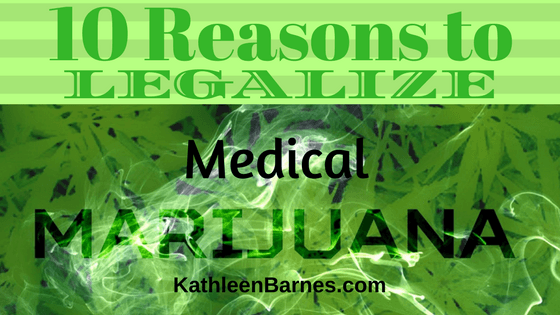Watching CNN the other night, I was pleasantly surprised when Dr. Sanjay Gupta, the network’s chief medical correspondent, reported that he has reversed his previous position and now supports the legalization of medical marijuana.
In a deeply apologetic mea culpa, Gupta said he had not adequately researched the health benefits of marijuana, and apologized for “misleading people.”
“I feel very badly that people have suffered for too long, unable to obtain the legitimate medicine that may have helped them,” Gupta said.
Gupta confirmed he now recognizes that research on the health benefits of medical marijuana – “documented for thousands of years” –is substantial.
Medical marijuana and indeed, the legalization of recreational marijuana, have been subjects of deep controversy in the United States for many years.
I have personally known many for whom marijuana offered relief from their suffering from glaucoma, the aftereffects of chemotherapy and even epileptic seizures. The fact that marijuana was illegal and it was risky to obtain this life-enhancing substance made their suffering even worse.
Now 20 states and the District of Columbia have legalized medical marijuana and 15 more are considering it. The handwriting is on the wall. I think it likely medical marijuana will be legal in all 50 states in the next couple of years.
And it should be. The body of evidence supporting the health benefits of marijuana and its derivatives is becoming quite impressive.
Here’s a short list:
- Cancer: Cannabinoids (the active ingredient in marijuana) has been shown in animal studies to kill tumor cells and tumor growth.
- Alzheimer’s: Marijuana works to prevent Alzheimer’s by blocking the formation of beta amyloid plaques that are a cause of the disease, according to 2006 research from the Scripps Institute.
- Seizures: As a muscle relaxant and antispasmodic, marijuana has been shown to be a very effective treatment for many types of seizures.
- Migraines: Doctors in California report they have successfully treated more than 300,000 people with migraine headaches for whom standard medicine could offer no relief since medical marijuana was legalized in the state.
- Multiple sclerosis: Marijuana stops the neurological effects and muscles spans of the invariably fatal disease.
- Irritable bowel syndrome and Crohn’s disease: Marijuana has been shown to relieve the symptoms of these debilitating conditions by stopping nausea, cramping, abdominal pain and diarrhea.
- Premenstrual syndrome (PMS): Marijuana blocks the cramping associated with PMS, much in the same way it works for the digestive problems above.
- Glaucoma: Marijuana’s effects on this disease of the optic nerve that can cause blindness. Extensive research shows marijuana lowers the pressure in the eye, relieving pain and even reversing the condition.
- Tourette’s syndrome: This neurological condition is characterized by tics, grimaces and involuntary movements. Marijuana has been shown to reduce or even eliminate the spasms.
- ADD and ADHD: Marijuana has been shown to be at least as effective as the prescription drug Ritalin without any of the negative side effects associated with the drug.
More research is under way on additional uses of marijuana for cancer treatment as well as its use to treat PTSD.
The U.S. Congress, in all of its ignorance, still classifies marijuana as a Schedule 1 drug, defined as having a potential for abuse and addiction and no medical value, a classification often reserved for highly addictive street drugs like heroin.
“This journey (toward legalized medical marijuana) is also about a Draconian system where politics override science and patients are caught in the middle,” Gupta wrote.
Marijuana can be addictive, but it is less addictive than alcohol. The National Institute on Drug Abuse says that about 9% of marijuana users becomes addicted as opposed to about 12% of alcohol users and 30% of tobacco users.
Even the formerly unconvinced Dr. Gupta admits that the social use of marijuana is not terribly problematic:
“There is clear evidence that in some people, marijuana use can lead to withdrawal symptoms, including insomnia, anxiety and nausea,” Gupta wrote in his article, “Why I Changed My Mind on Weed,” referring to medical marijuana. “Even considering this, it is hard to make a case that it has a high potential for abuse. The physical symptoms of marijuana addiction are nothing like those of the other drugs I’ve mentioned (heroin and cocaine).”








Marijuana can help with the muscle pain, tension, spasticity, tremors, stiffness, and unsteadiness associated with the disease.
MARIJUANA HELPS EVERYTHING THAT PILLS ARE PRESCRIBED TO DO. THE PHARMACEUTICAL COMPANIES DON’T WANT WEED LEGAL BECAUSE IT’LL KNOCK THEIR SALES PROBABLY. I DON’T GIVE 2 CRAPS ABOUT THE STUPID PILLS, MAKE WEED LEGAL IN THE USA NOW .I REALLY NEED A GREAT STRAIN TO HELP ME. TENNESSEE LAW’S ARE STUPID, LEGALIZE MARIJUANA IN TENNESSEE. CRAZY JERKS !!!!
Those are ¨10¨ reasons. But they are just 10 diseases, so it´s really 1 reason